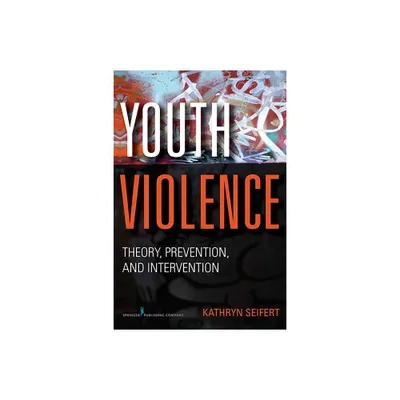Home
Why Girls Fight: Female Youth Violence in the Inner City
Loading Inventory...
Barnes and Noble
Why Girls Fight: Female Youth Violence in the Inner City
Current price: $30.00


Barnes and Noble
Why Girls Fight: Female Youth Violence in the Inner City
Current price: $30.00
Loading Inventory...
Size: OS
*Product Information may vary - to confirm product availability, pricing, and additional information please contact Barnes and Noble
In low-income U.S. cities, street fights between teenage girls are common. These fights take place at school, on street corners, or in parks, when one girl provokes another to the point that she must either “step up” or be labeled a “punk.” Typically, when girls engage in violence that is not strictly self-defense, they are labeled “delinquent,” their actions taken as a sign of emotional pathology. However, in
Why Girls Fight
, Cindy D. Ness demonstrates that in poor urban areas this kind of street fighting is seen as a normal part of girlhood and a necessary way to earn respect among peers, as well as a way for girls to attain a sense of mastery and self-esteem in a social setting where legal opportunities for achievement are not otherwise easily available.
Ness spent almost two years in west and northeast Philadelphia to get a sense of how teenage girls experience inflicting physical harm and the meanings they assign to it. While most existing work on girls’ violence deals exclusively with gangs, Ness sheds new light on the everyday street fighting of urban girls, arguing that different cultural standards associated with race and class influence the relationship that girls have to physical aggression.
Why Girls Fight
, Cindy D. Ness demonstrates that in poor urban areas this kind of street fighting is seen as a normal part of girlhood and a necessary way to earn respect among peers, as well as a way for girls to attain a sense of mastery and self-esteem in a social setting where legal opportunities for achievement are not otherwise easily available.
Ness spent almost two years in west and northeast Philadelphia to get a sense of how teenage girls experience inflicting physical harm and the meanings they assign to it. While most existing work on girls’ violence deals exclusively with gangs, Ness sheds new light on the everyday street fighting of urban girls, arguing that different cultural standards associated with race and class influence the relationship that girls have to physical aggression.


















